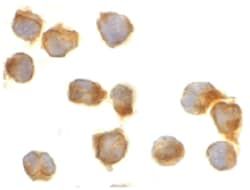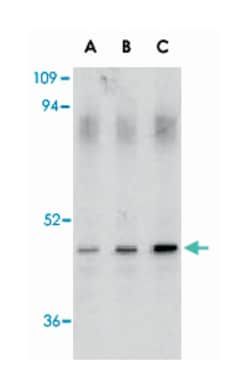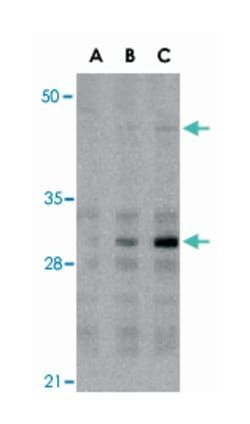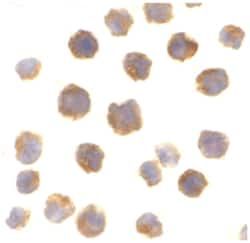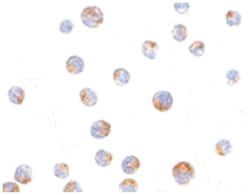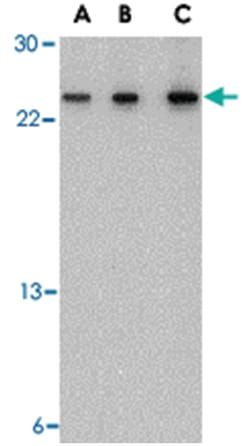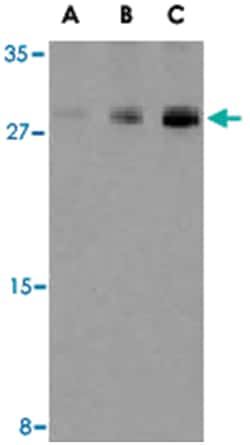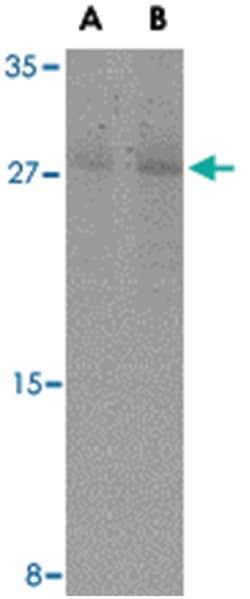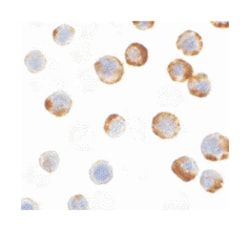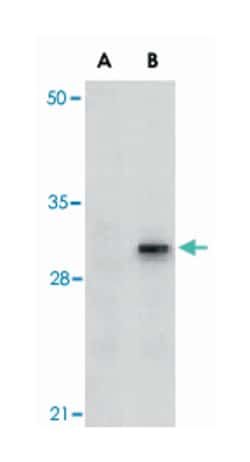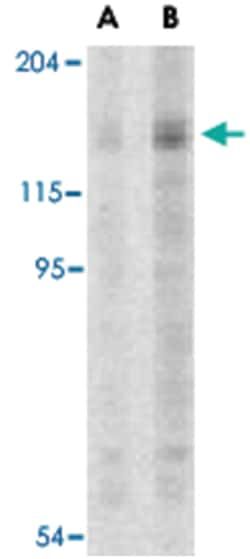CASP6 Rabbit anti-Human, Polyclonal Antibody, Abnova™
Manufacturer: Abnova Corporation
Select a Size
| Pack Size | SKU | Availability | Price |
|---|---|---|---|
| Each of 1 | 89-116-384-Each-of-1 | In Stock | ₹ 76,718.00 |
89-116-384 - Each of 1
In Stock
Quantity
1
Base Price: ₹ 76,718.00
GST (18%): ₹ 13,809.24
Total Price: ₹ 90,527.24
Antigen
CASP6
Classification
Polyclonal
Description
Rabbit polyclonal antibody raised against synthetic peptide of CASP6.
Formulation
In PBS (0.02% sodium azide)
Gene Accession No.
NP_001217
Gene Symbols
CASP6
Immunogen
A synthetic peptide corresponding to internal region 15 amino acids of human CASP6.
Regulatory Status
RUO
Gene ID (Entrez)
839
Target Species
Human
Form
Liquid
Applications
Immunocytochemistry, Western Blot
Conjugate
Unconjugated
Dilution
Western Blot (1 ug/mL) The optimal working dilution should be determined by the end user.
Gene
CASP6
Gene Alias
MCH2
Host Species
Rabbit
Quantity
100 μg
Primary or Secondary
Primary
Test Specificity
Anti-Caspase-6 is human specific. Depending on cell lines or tissues used, either full-length or other cleavage products may be observed.
Content And Storage
Store at 4°C for three months. For long term storage store at -20°C.Aliquot to avoid repeated freezing and thawing.
Description
- This gene encodes a protein which is a member of the cysteine-aspartic acid protease (caspase) family
- Sequential activation of caspases plays a central role in the execution-phase of cell apoptosis
- Caspases exist as inactive proenzymes which undergo proteolytic processing at conserved aspartic residues to produce two subunits, large and small, that dimerize to form the active enzyme
- This protein is processed by caspases 7, 8 and 10, and is thought to function as a downstream enzyme in the caspase activation cascade
- Alternative splicing of this gene results in two transcript variants that encode different isoforms
- [provided by RefSeq
